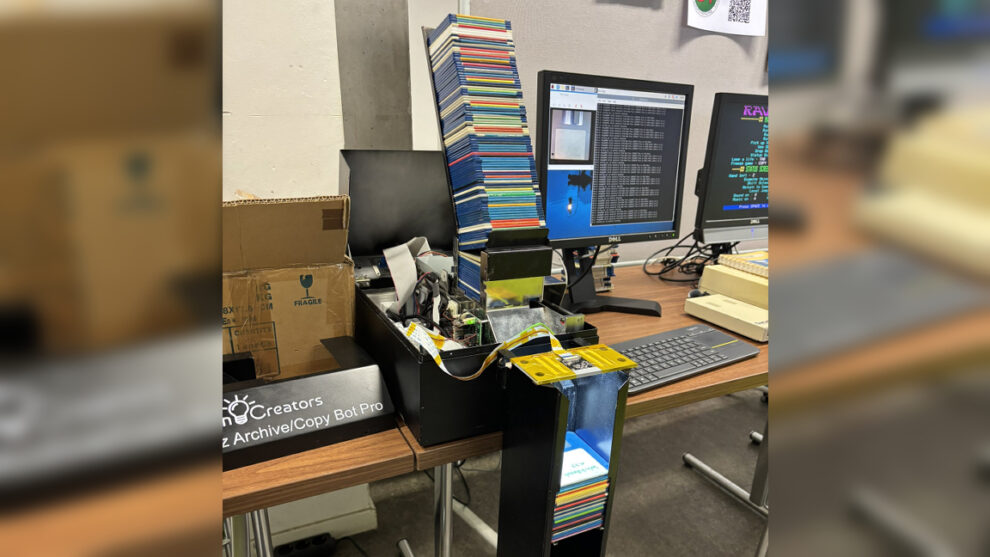It’s often the innovative thinkers who breathe new life into the relics of the past. One such visionary is Graham Tinkers, who has developed a remarkable system that uses a Raspberry Pi to automatically archive a stack of Commodore Amiga floppy disks – a feat that would have been unimaginable just a few years ago.
The Commodore Amiga, a pioneering personal computer introduced in 1985, was renowned for its groundbreaking hardware and pre-emptive multitasking operating system, which put it ahead of its time. However, the Amiga’s relatively high cost meant that it often found its way into professional settings, such as the television industry, rather than the mainstream consumer market.
Tinkers, a passionate maker and developer, found himself in possession of a sizable collection of over 800 Amiga floppy disks – a treasure trove of both commercial and pirated software. Determined to preserve this important piece of computing history, he set out to create a custom archival system that would streamline the daunting task of backing up these disks.
The key to Tinkers’ creation lies in the integration of old and new technologies. By combining parts from disk duplicators and the ever-versatile Raspberry Pi, he has developed a system that automatically processes stacks of floppy disks and backs them up onto a USB drive. The rig can handle approximately 50 disks at a time, ejecting them from the stack using the spring-loaded floppy drives and capturing images of each disk using a Raspberry Pi camera module.
The software powering this ingenious system is Greaseweazle, an open-source tool used for reading floppy disk data. Tinkers explains that the system can even capture flux images of copy-protected disks, although the success rate varies. The disk image files and their corresponding photographs are saved with matching file names, providing a comprehensive digital archive of the physical media.
One of the most impressive aspects of Tinkers’ creation is its adaptability. He plans to donate the machine to a local maker space in Berlin, allowing others to utilize the system to archive their own Amiga floppy disk collections. This collaborative approach to preserving a significant chapter in computing history is a testament to Tinkers’ commitment to the community.
The Amiga scene, once renowned for its thriving piracy culture, now serves as a reminder of the importance of digital preservation. By automating the archival process, Tinkers has not only streamlined a tedious task but also paved the way for the safeguarding of these historical artifacts.
As the world continues to evolve, it’s essential that we find innovative ways to preserve the legacies of the past. Tinkers’ creation, a fusion of vintage hardware and modern technology, stands as a shining example of how a Raspberry Pi can be leveraged to breathe new life into the relics of computing history, ensuring that the Commodore Amiga’s legacy lives on for generations to come.
















Add Comment